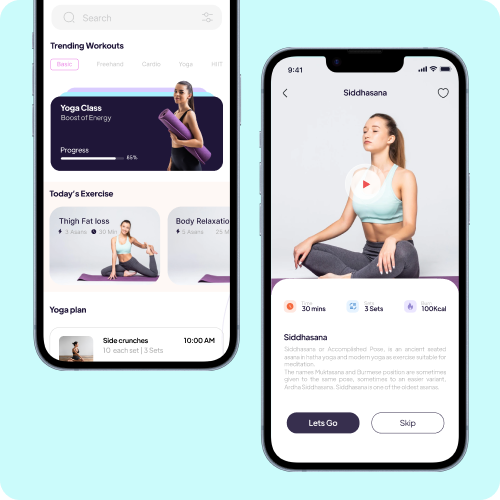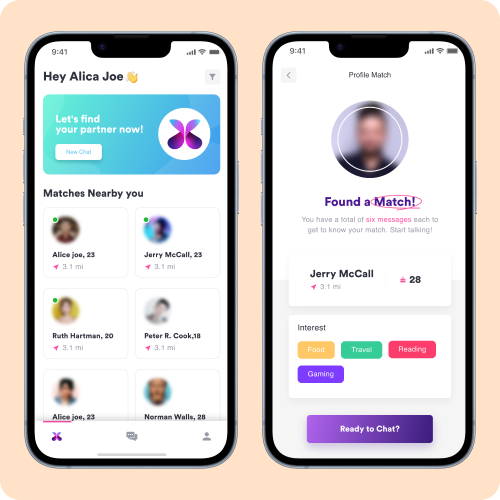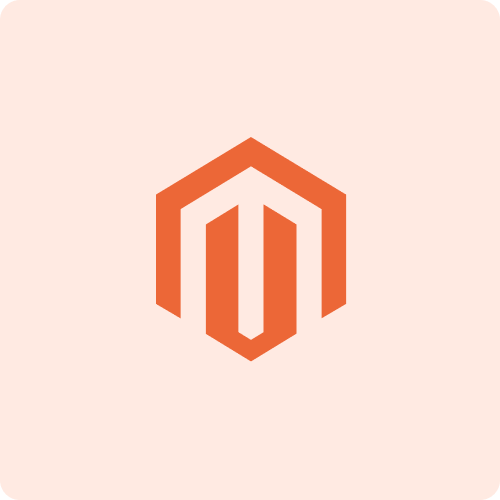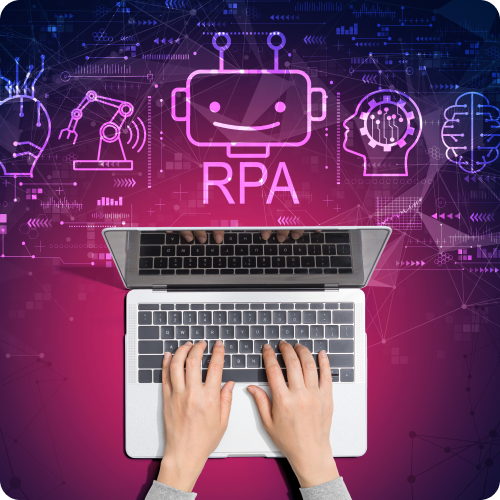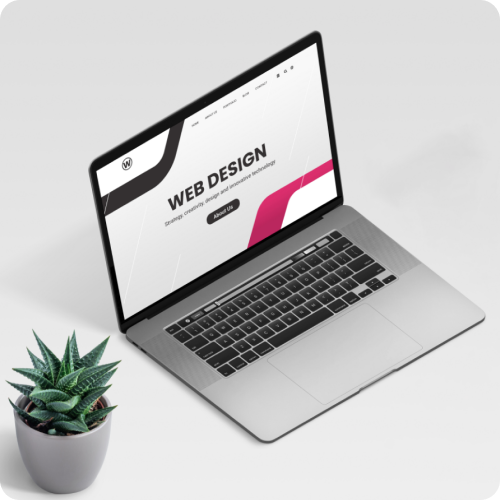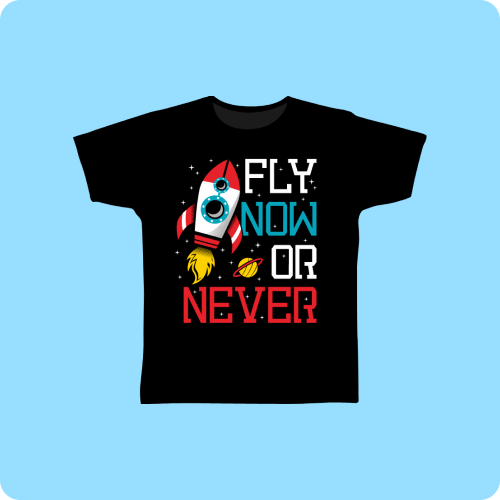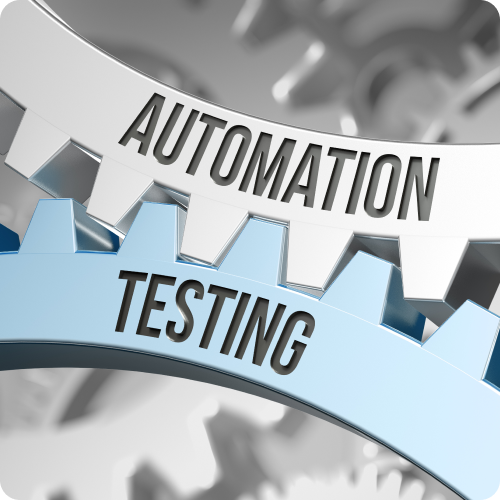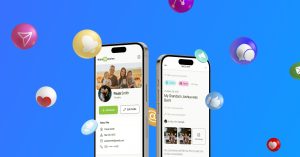The COVID-19 epidemic has placed the healthcare industry at the center of attention. These growing healthcare trends in the industry will continue to reach greater heights with the advancement of technology.
Healthcare trends in 2023 have become of utmost importance in the digital era. With everything accessible at the tips of our fingertips, healthcare app development has grown exponentially.
It is not easy to develop a healthcare app with the latest features and healthcare trends. As per Statista, there are about more than 54,546 healthcare apps that are available on the Google Play Store, and more than 41,517 healthcare apps are available on the Apple App Store.
However, with the massive competition that these apps face from their fellow competitors, many of these apps have less than 10,000 downloads according to the app usage. This is precisely why your app must integrate the latest healthcare trends.
Healthcare app development has come a long way in recent years, and it continues to evolve rapidly. With the increasing demand for convenient, accessible, and personalized healthcare services, healthcare app development has to be updated with constant innovations and healthcare trends to meet the needs of patients and healthcare providers.
In this blog post, here are some of the latest trends in healthcare industry for your healthcare app development.
The healthcare app development market has been growing rapidly in recent years, and this trend is expected to continue into 2023 and beyond. According to a report by Grand View Research, the global healthcare mobile app development market is expected to reach USD 111.8 billion by 2025, growing at a CAGR of 25.6% from 2020 to 2025.
Latest Healthcare Trends that Have Transformed the Healthcare App Development Industry
The mHealth market size was valued at USD 63.88 billion in 2022 and is expected to reach USD 243.57 billion by 2030 at a CAGR of 18.2% in the timeline of 2022-2030.
The COVID-19 pandemic has accelerated the adoption of healthcare apps and the latest healthcare trends, particularly telemedicine and virtual care apps.
According to a report by McKinsey, The US market evaluation of the telemedicine application is expected to reach a CAGR of 15.8% of USD 25.88 Billion by 2027. This trend is expected to continue as more people become accustomed to remote healthcare services.
- Wearable devices are also expected to play a larger role in healthcare app development in 2023. The market for wearable devices and medical app development is expected to grow at a CAGR of 21.4% from 2020 to 2027, according to a report by Allied Market Research.
- Artificial intelligence (AI) and machine learning are also expected to continue to play a larger role in healthcare app development. AI algorithms can analyze large amounts of patient data to identify patterns and make predictions about patient outcomes. As one of the fastest-growing healthcare trends, it can help healthcare providers to identify patients who are at risk of developing certain conditions and provide targeted interventions to prevent or treat those conditions.
- Personalized medicine is also expected to be a growing healthcare industry trend in healthcare app development in 2023. As the latest healthcare trends make use of the fact that different patients may respond differently to the same treatments, personalized medicine involves tailoring treatments to an individual’s unique genetic profile, medical history, and lifestyle factors.
- Mental health apps are also expected to continue to be one of the growing healthcare trends in 2023. According to a report by MarketsandMarkets, the global mental health software market is expected to reach USD 4.9 billion by 2025, growing at a CAGR of 13.5% from 2020 to 2025.
This growth is driven by the increasing prevalence of mental health disorders and the growing awareness of the importance of mental health.
In conclusion, the healthcare app development market is expected to continue to grow rapidly in 2023, driven by trends such as telemedicine, wearable devices, AI and machine learning, personalized medicine, and mental health apps.
Read more: Ultimate Guide for Healthcare App Development
As technology continues to advance, developers are finding new and innovative ways to create apps that help patients manage their health and well-being. Therefore, integrating newer healthcare trends in your healthcare app development is very crucial.
Top 10 Healthcare Trends for Healthcare App Development in 2023:
1. Telemedicine and Virtual Care
Telemedicine and virtual care have become more popular as a way to connect patients with healthcare providers remotely. The COVID-19 pandemic has accelerated the adoption of telemedicine as one of the healthcare trends, as many patients are hesitant to visit healthcare facilities due to the risk of infection. Telemedicine and virtual care apps allow patients to consult with healthcare providers, receive diagnoses, and even receive digital prescriptions from the comfort of their own homes.
“The global telehealth market size was valued at USD 83.5 billion in 2022 and is expected to increase at a CAGR of 24% during the forecast period of 2023-2030,” states the Grand View Research report.
Telemedicine and virtual care apps can also provide remote monitoring services, allowing healthcare providers to track patients’ health and provide timely interventions when necessary. As one of the best healthcare trends, it is particularly useful for patients with chronic conditions, who require regular monitoring and medication adjustments.
2. Wearable Devices
Wearable devices, such as fitness trackers and smartwatches, are becoming more advanced and can now monitor a wide range of health indicators, including heart rate, blood pressure, and sleep patterns.
Apps that can integrate with these devices are becoming more popular for healthcare trends, allowing patients to track their health data and share it with their healthcare providers.
Wearable devices can also be used to monitor patients remotely, allowing healthcare providers to track their health and provide timely interventions when necessary. For example, wearable devices can be used to monitor patients with heart conditions, alerting healthcare providers when there is a change in their heart rate or rhythm.
3. AI and Machine Learning
Artificial intelligence (AI) and machine learning are being used in healthcare to develop predictive analytics tools, personalized medicine, and clinical decision support systems. As one of the important healthcare trends, AI and machine learning algorithms can analyze large amounts of data and identify patterns that are not visible to the human eye.
Read more: Benefits of AI in Healthcare Sector
This can help healthcare providers make more accurate diagnoses and develop more effective treatment plans. AI and machine learning algorithms can also be used to develop personalized medicine.
By analyzing a patient’s unique genetic profile, healthcare providers can tailor treatments to their specific needs, improving their chances of a successful outcome.
4. Blockchain Technology
Blockchain technology is being used in healthcare to improve data security and interoperability. Healthcare data is highly sensitive, and it is important to ensure that it is kept secure and confidential.
Blockchain technology provides a secure and transparent platform for sharing patient data between healthcare providers, without compromising data security.
Blockchain technology can also improve data interoperability, making it easier for healthcare providers to share data across different systems and platforms. As one of the crucial healthcare trends, this can improve the accuracy and timeliness of diagnoses and treatments, leading to better patient outcomes.
5. Personalized Medicine
Personalized medicine is becoming more popular as healthcare trends, and apps that can help patients and healthcare providers tailor treatments to an individual’s unique genetic profile are becoming more common.
By analyzing a patient’s genetic makeup, healthcare providers can identify potential health risks and develop personalized treatment plans to prevent or manage these risks.
Personalized medicine apps can also provide patients with information about their genetic makeup and how it may affect their health. As one of the essential healthcare trends, it can empower patients to take control of their health and make informed decisions about their care.
6. Mental Health Apps
Mental health apps are becoming more popular in healthcare trends, as a way to provide support and resources to individuals who are struggling with mental health issues. These apps can provide access to mental health professionals, mindfulness exercises, and other tools to help manage symptoms.
Mental health apps can also provide patients with education and resources about mental health, helping to reduce the stigma surrounding mental illness. By providing a safe and confidential platform for individuals to seek help, mental health apps can improve them becoming one of the trends in healthcare industry.
Mental health apps can also provide valuable data to healthcare providers, allowing them to monitor patient outcomes and provide targeted interventions. For example, an app that tracks a patient’s mood and anxiety levels could help their therapist to identify triggers and develop coping strategies.
There are many such mental health care apps that also allow users to practice meditation, yoga and exercise for optimum relaxation and energy.
Read More: How to Build Your Own Yoga Routine App?
As per WHO’s survey, 1 in a group of 8 people in the world lives with any one or more sorts of mental disorders such as thinking, emotions, regulation, depression, stress, anxiety, behavior, sleep, etc. And during the COVID-19 situation, the rates for anxiety and depressive disorders have increased by 26% and 28%, respectively.
As per the Precedence Research, the mental health app market size is expected to reach the height of USD 19.6 billion by 2030 with a CAGR of 18.06% during the forecast period of 2022-2030.
7. Gamification trends in Healthcare Industry
Gamification is one of the emerging healthcare trends being used in healthcare apps to encourage users to engage with their health and wellness. Gamification is a popular trend in healthcare app development. It involves integrating game-like features and mechanics into non-game contexts to increase user engagement and motivation. Here are some of the current trends in healthcare industry that incorporate gamification:
Wellness challenges: Many healthcare apps are now incorporating wellness challenges that encourage users to engage in healthy behaviors. These challenges can include anything from daily exercise goals to healthy eating challenges, and users can earn rewards for completing them.
Virtual rewards and incentives: Gamification in healthcare apps often includes virtual rewards and incentives to keep users motivated. These rewards can include badges, points, or even virtual currency that can be redeemed for real-life rewards.
Personalized experiences: Healthcare apps are now using gamification to create personalized experiences for users. For example, an app might use game mechanics to create a customized workout plan that takes into account the user’s fitness level, goals, and preferences.
Social engagement: Gamification can also be used to increase social engagement within healthcare apps. For example, users might be able to challenge their friends to fitness competitions or earn rewards for sharing their progress on social media.
Virtual reality: Healthcare app development projects are beginning to incorporate virtual reality (VR) to create more immersive and engaging experiences. VR can be used to simulate exercises or provide visualizations of health data, making it easier for users to understand and engage with their health.
8. Internet of Things in Healthcare Trends
The Internet of Things (IoT), or virtually connected internet technology, is having an impact on a variety of industries. Similarly, the healthcare industry is moving towards the adoption of IoT solutions.
According to a GlobalNewsWire report, global adoption of IoT solutions in the healthcare industry is expected to exceed USD 253.7 billion by 2026, at a CAGR of 20.5%.
Health apps linked to IoT will be responsible for comprehensive healthcare and patient comfort. Furthermore, it will be useful in gaining access to valuable patient information and monitoring his progress – a solution known as Remote Patient Monitoring (RPM).
This solution is extremely useful, especially when dealing with chronic disease conditions and receiving remote treatment.
The adoption of RPM solutions has reached a new high following COVID-19. According to a report, the market size is expected to reach USD 175.2 billion by 2027, up from USD 53.6 billion in 2022.
To carry out better operations during the treatment process, the Internet of Things can be simply connected with some highly advanced devices and medical equipment. Furthermore, as one of the important healthcare trends, it will provide much more precise and refined report insights.
ECG Monitoring, Body Vitals Monitoring, Rehabilitation Systems, and other top IoT healthcare solutions are expected to be adopted as a part of these emerging healthcare trends.
9. Cloud-Based Technology – an Emerging Healthcare Trend
If you ask any healthcare professional, one of the most difficult tasks is storing the patient’s data or documentation. However, with the introduction of cloud-based solutions, many of these tasks will be made easier than ever before.
Patients’ Electronic Health Records (EHR) can be stored and accessed 24 hours a day, seven days a week.
According to DataDynamics Inc research, the healthcare industry is expected to store approximately 30% of global digital records. This contribution is expected to reach 36% by 2025, growing at a rate 6-11% faster than the manufacturing, finance, and media & entertainment industries.
About 80% of healthcare data is unstructured, it necessitates specific computation, allocation, storage, and management requirements that can only be met effectively by cloud computing solutions.
Read more: How has Technology Improved Healthcare?
Cloud-based technologies are benefiting not only hospital administration but also health insurance companies as one of the mainstream healthcare trends. They can securely store vital information such as each patient’s healthcare premium and policy number.
So, we can confidently state that approximately 83% of healthcare industry data, structured and unstructured, is stored in cloud platforms for improved availability, accessibility, and management, as well as security assurance.
10. Big Data Analytics in Healthcare
Big data has greatly aided in the management of the hospital’s sources, such as keeping a record of the hospital staff, medical professionals, doctors, nurses, and so on. As one of the important healthcare trends, it also provides valuable information on which patients require emergency care and how staff should assist them.
These trends in healthcare industry are useful to know how many beds are available so that patients who need to be admitted do not have to wait too long.
Electronic Health Records have been a boon to mobile health apps because they allow patients to store their health records digitally.
It would include information such as their weight, height, medical history, medications they are taking, blood and sugar levels, and so on. So, the next time you go to the doctor, you can avoid telling him about your medical history. The EHR can manage almost anything: medications, patient history, doctor prescriptions, and so on.
Predictive Analytics as one of the healthcare trends is a combination of Big Data and EHRs. It is a document containing massive data that provides an accurate prediction of what treatment would be most appropriate for the patient based on the diagnosis of the health problem. It would also give you an estimate of how long the patient will need to recover, and so on.
Read more: Benefits of Big Data in the Healthcare Sector
Furthermore, Allied Market Research predicts that global big data analytics adoption in the healthcare market will reach USD 67.82 billion by 2025.
It goes on to say that the top big data applications used as one of the best trends in healthcare industry include clinical analytical, financial analytical, and operational analytical solutions, with “clinical analytics” being the most profitable.
The cost of healthcare app development ranges as per the hours put into developing the fitness app and the trends you want to hyper focus on. To know a rough estimate of medical app development in the health and fitness industry, read ‘How Much Does it Cost to Build a Fitness App?‘
Let Us Integrate these Healthcare Trends for You!
We have seen the advancement of healthcare app development towards the digital landscape, allowing advanced medical treatments for patients while ensuring cost-effectiveness.
However, with this advancement in healthcare mobile app development, the trends in healthcare industry must ensure that this medical app development is compliant with HIPAA regulations.
Following healthcare trends, healthcare mobile app development will become smarter, resulting in better business opportunities while also promoting human health and welfare.
When it comes to staying on top of healthcare trends and competing with the intense market competition for healthcare app development, and providing a good digital healthcare experience, Resourcifi is your best bet when it comes to building digital solutions for trends in healthcare industry.
Contact us now and get in touch with the best digital solution providers for healthcare industry trends 2023. We have a record of providing best-in-class solutions that can boost your healthcare operations.
FAQs On Healthcare Trends for Healthcare App Development
1. How to get medical app development services that have the latest mobile healthcare trends?
To ensure that your app is well integrated with all of the mobile healthcare trends, you will have to look for hiring top-notch healthcare app development that can help you with healthcare mobile app development with the latest healthcare trends. Resourcifi helps you with the development, maintenance, and support but also helps you with App Store Optimization practices and developing strategies for app marketing.
2. How Much Does It Cost To Develop a Healthcare App?
Estimating the cost to develop a healthcare app that provides uniqueness and innovation to your customers can be difficult to put a price tag on. However, to give you a rough estimation, healthcare app development hours determine that cost to a great extent. By factoring in the app design and development requirement, the country of the service providers, the complexity of the medical app development, and the kind of healthcare trends and features to integrate, you can get a rough idea.
3. What are the top healthcare trends for healthcare app development?
- Internet of Things (IoT): The IoT is the connection of everyday devices to the internet, allowing for seamless communication and automation.
- Artificial Intelligence (AI): AI is being used in mobile app development to create intelligent chatbots, personal assistants, and predictive analytics.
- Augmented Reality (AR) and Virtual Reality (VR): AR and VR can be used in gaming, education, tourism, and many other industries.
- Mental Health Apps: These apps help in regulating the emotions, thoughts, and behavior of a person.
- Women Wellbeing Apps: These apps help in tracking the physical wellness of women to keep a check on their health.
- Wearable Devices: This trend is expected to continue as wearable technology becomes more advanced and widely adopted.
4. What are the trends in AI in healthcare?
- Medical Imaging: AI algorithms are being developed to analyze medical images such as CT scans, MRI scans, and X-rays.
- Personalized Medicine: AI is being used to analyze a patient’s genetic data and create personalized treatment plans based on their unique genetic makeup.
- Predictive Analytics: AI algorithms can analyze large amounts of patient data to predict the likelihood of certain diseases or conditions.
- Drug Development: AI is being used in drug development to identify potential drug candidates and to simulate the effects of drugs on the body.
- Virtual Assistants: AI-powered assistants can provide personalized advice, monitor patient data, and remind patients to take their medication.
- Robot-assisted Surgery: These robots can provide greater precision and accuracy, reducing the risk of human error in surgery by assisting surgeons in performing procedures.
- Cybersecurity: AI algorithms are being used to detect and prevent cyber attacks on healthcare systems as more patient data is stored electronically. For ensuring an end-to-end healthcare app development, it is important to stay updated with the healthcare trends and integrate the emerging trends in healthcare industry in your medical app development.









